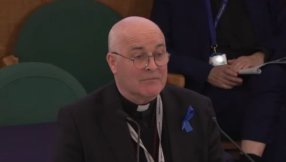The Government has formally abandoned plans to allow people to "self-identify" as their chosen gender.
The controversial plans were drawn up under former Prime Minister Theresa May and would have amended the Gender Recognition Act 2004 to drop the requirement for a medical diagnosis of gender dysphoria.
The Government's long-awaited response to a public consultation on the reforms says that the process to legally change genders will be made "kinder and more straightforward" but will not introduce gender self-ID.
In a written statement on Tuesday, equalities minister Liz Truss said current laws strike a balance between the rights of transgender people and women.
"As a Government, we are determined that everyone in the UK should be free to live their lives and fulfil their potential regardless of their sex, gender identity, race or disability," she said.
"We are proud to have introduced same-sex marriage and passed the Turing law. We want transgender people to be free to live and to prosper in a modern Britain.
"We have looked carefully at the issues raised in the consultation, including potential changes to the Gender Recognition Act 2004.
"It is the Government's view that the balance struck in this legislation is correct, in that there are proper checks and balances in the system and also support for people who want to change their legal sex."
Changes that will be made to the process include making it cheaper. At present, applying for a Gender Recognition Certificate costs £140 but this will be reduced to a "nominal amount".
Ms Truss added that the Government is drawing up plans to create "at least" three new gender clinics to reduce waiting lists for transgender healthcare "by around 1,600 patients by 2022".
"The full benefit of the increases in clinical capacity that we've been able to secure will lead to greater patient choice, shorter waiting times, better geographical coverage and easier access," she said.
"It will also make it easier to fulfil the medical requirements of obtaining a GRC."
Ms Truss also clarified that single-sex spaces would be protected.
"Britain leads the world as a country where everybody is able to lead their life freely and treated with respect and that, for many years, transgender people have been widely accepted in British society; able to use facilities of their chosen gender; and able to participate fully in modern life," she said.
"At the heart of this is the principle of individual liberty. Our philosophy is that a person's character, your ideas, and your work ethic trumps the colour of your skin or your biological sex.
"We firmly believe that neither biology nor gender is destiny. The Equality Act 2010 clearly protects transgender people from discrimination. The same act allows service providers to restrict access to single sex spaces on the basis of biological sex if there is a clear justification."
READ MORE: The Government is right to reject gender self-identification
The Christian Institute's Simon Calvert said that maintaining the status quo would protect people with gender dysphoria, as well as women and girls.
"It will do much to help protect people with gender dysphoria from being rushed into life-changing decisions which they may later regret – an increasingly common phenomenon," he said.
"It will also be a relief to some of the families of people with gender dysphoria as they seek to sensitively support them. Crucially, keeping the current law will help protect women-only spaces from men who do not have gender dysphoria but who are sexual predators who will do anything to gain access to women-only spaces, including pretending to be trans."
He added: "The claim that one's actual sex is something other than biological sex is a radical and highly contentious statement. It should not just be accepted uncritically and given legal force on demand."
Fair Play for Women, a group campaigning for the protection of single-sex spaces, welcomed the Government's response, saying it was "a fair decision balancing the rights of all; trans people and women".
Stephanie Davies-Arai, founder and director of Transgender Trend, said the decision reflected a recognition in Government that current provisions, including the diagnosis of gender dysphoria, are "fair and necessary".
"Today's decision protects the existing rights of women and girls to privacy and safety in single-sex spaces, and maintains current checks and balances in applying for a GRC. This is critical for the safeguarding and protection of women, children and young people," she said.
"Today's announcement maintains the rights of trans people without denying biological reality. A system of self-ID would have reinforced the idea learned by young people online and in school that their feelings override their biological sex.
"For children confused about their identity and their developing bodies, this belief sets them on a path to social then medical transition with irreversible lifetime consequences."













